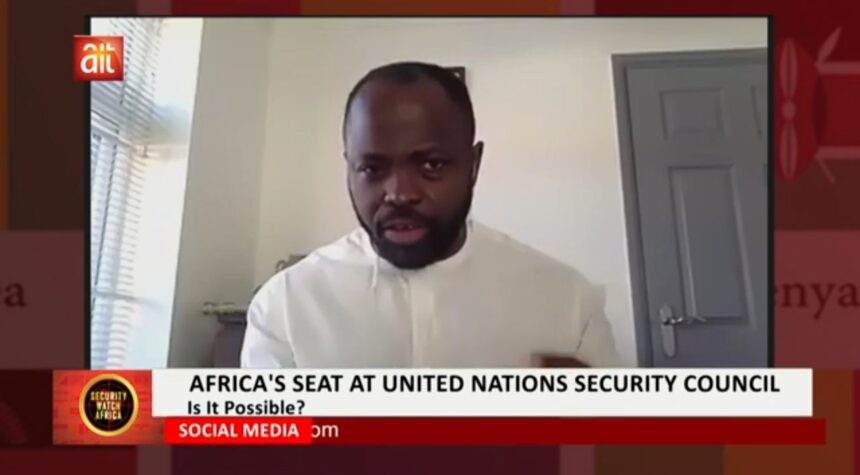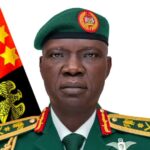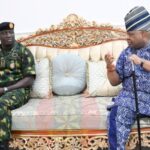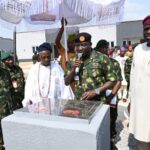By Augustine Ehikioya
An International Security Analyst, David Otto, has explained why the clamour for Africa to get a permanent seat in the United Nations Security Council (UNSC) may never materialize.
According to him, it was never in the minds of the big five permanent members of the UNSC for Africa to be admitted to the position.
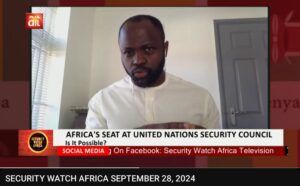
Otto, who spoke via Zoom platform from the United Kingdom during Security Watch Africa (SWA) programme on African Independent Television, said the UN is purely for the ‘big boys’ interest.
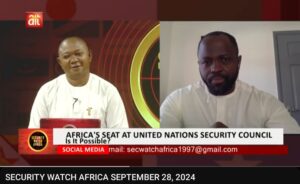
The programme was anchored by the SWA President and CEO, Mr. Patrick Agbambu.
Answering question if it’s possible for Africa to be given the permanent seat and shedding light on the organization’s composition, David Otto said “I think it’s very important, Mr. Patrick, in having this discussion regarding the United Nations and the Security Council to have a very good context, particularly if we’re talking about the fact that we were looking towards Africa having a permanent seat at the Security Council, and not just that, you know, there is also talk about Africa being able to be have the voting right.
“So we’ve got to look at the old background of the United Nations. I mean, this was that, you know, was formed in 1945 you know, between twenty sixth of June and at that time, you know, it had 50 members amongst those 50 members, you know, you just had four African countries who were part of the signatories on that fateful 26th of June.
“And amongst those members, of course, you know, you had countries like Egypt, Ethiopia, Liberia and South Africa. So you’ve got to understand that these were the countries, I’m talking about 1945 so in that period, very few African countries had their independence.
“Countries like South Africa already had their independence. Of course, they were under what we call now the apathied regime, Ethiopia, of course, had had its independence before Liberia in the 1840s.
“And of course, you know Egypt was part of the Ottoman Empire under the British. So these were the four African countries that were the original members of the United Nations when it was established.”
He also pointed out that the United Nations was established as a result of the failure of what was known at that time as the League of Nations, because the League of Nations had failed to stop the Second World War.
The International Security Analyst also disclosed that the League of Nations was created after the First World War as a result of the 14 points that were brought forward by the United States president then Woodrow Wilson.
“The 14th of that point was to establish the League of Nations. And at that point in time, remember that Africa was being divided into various mandated territories, some went to France, some went to Germany and the rest of that. The United States, failed to become a member because the US Congress has opposed to that.
“So you’ve got to remember that this idea of a permanent membership of the United Nations, which, of course, now we have the United Nations Security Council, which had already been established long time ago.
“So the UN that you see today is some kind has the same structure like the League of Nations, that and the League was never established for the benefit of African countries.
“It was established strictly for the benefit of the Western countries, who were fighting each other, who had spheres of influence within Africa, and so Africa was never a priority. So it’s very critical to understand that.
“So the formation and establish, you know, the five members of the Security it’s reflection of revelation of what so permanent membership has always existed, and it has always been for what we refer to as the big five. You know, of course, we talk about UK, France, China, US and Russia. They’ve always been there.” he stated.
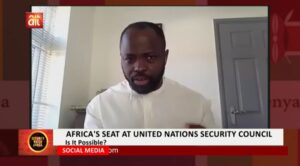
Continuing, David Otto said “And this veto power, this permanent membership, the Big Five members, they do not want to give away their power. So you’ve got to understand that. But also, you know this is quite critical to understand that when Africa talks about having a permanent membership, remember, I mentioned to you that when the UN was created in 1945 after the Second World War, only four African countries were members and a lot of the African countries that joined, for example, Nigeria, joined on the seventh of October 1960 because of its independence on the first of October 1960.
“Now these countries were still very young, and they were not the original members of the UN.
So when we are talking today about whether Africa is going to have a permanent seat at the United Nations, you did mention very correctly that currently you have 15 members. Initially, you know permanent members became 10, but this 15 members, five of them are permanent.
“The rest rotationally after every two years. So there has always been a protection by the so called five permanent members of the UN with the veto power.
“They do not want to see a break of that relation, something that they have already created, a structure that will protest their own interests. So it has been very difficult. And even if an African country is to get a seat or a permanency, the question is, are they going to be able to get the veto power that they require.” he queried.
“So from a practical point of view, it’s not just about Africa, you know what? About countries like Brazil, like India? Remember, if you look at the dynamics of what is going on, even if you look at the most powerful, you know, what they call the firepower index. You know, the countries will be the most powerful military.
“African countries do not appear in the first 10. You know, the other country that appears 15th is Egypt, if you look at the global firepower. So, you know, there are other countries besides Africa that are also fighting the likes of Japan, the likes of Brazil, likes of South Africa. So membership has to be looked at very critically.
“So we’ve got to be very careful in terms of what we are asking for, because other countries are thinking, why should we give Africa permanent membership? Now, the argument, which is very critical is that Africa, of course, you know, by 2051, four in 10 people who do well, they’re going to be African. Africa has 54 members, which is quite critical. Yeah, these are all advantages. You know that Africa has a huge, I think when you talk about the voting rights within the General Assembly, Africa has about 28% of course, Asia between 7%, America has recently 17% and of course, Western Europe, with 15%, so Africa has the biggest, you know, share of the General Assembly vote.
“Right, as far as getting a permanent seat is concerned, the big boys as I call them the Big 5, they do not want to see Africa become a permanent member.” he stated.
According to him, it will also generate great dispute among Africans if Africa is asked to nominate an African country to occupy the UNSC permanent seat.
On whether the interests of the big boys will not be jeopardized, if Africa is given a permanent seat, he said “Well, I think it is very critical. I mean, these countries do not want to see an African country, because when we talk about Africa, we talk about 54 countries here.
“So the question is going to be partly, which of the African States are going to get a permanent seat. And there is also the dispute, you know, the likes of, again, as I mentioned, Egypt, South Africa. Liberia and Ethiopia would say, Listen, we were the first original members.
“We signed the charter on the 26th of June, 1945 we should be the permanent members. They can also say countries like Egypt, Algeria could also argue that we’ve got the biggest army in Africa.
“Well, In Africa, Nigeria comes in terms of the biggest army. So why should we give it to someone else? There has to be, in my opinion, an agreement. And this is why the African Union is quite critical, because we have an African Union.
“We have an African Union where the African countries can sit down and, you know, have a plan in terms of who is going to be the permanent member. So it’s not just about the UN Security Council five members agreeing, which, of course, is a difficult position for them to agree to give a particular African country.
“It’s also about what the African countries do. You know when they sit at the African Union and say, we should, select a particular country. Geopolitics is so powerful, individual country interest is so powerful in such a way that it will be very difficult to have a particular African country.
“So for example, Nigeria say, let’s give it to South Africa. Or South Africa says, let’s give it to Nigeria, or let’s give it to Egypt. That becomes a difficult situation, because the sovereignty of each country is critical.
“So, I mean, my understanding has been, and always been, that, although Africa is a very powerful continent, you know, again, as I mentioned, by 2051 four in ten human beings will be Africans.
“You know, although Africa is so powerful and the world recognizes that, I think, you know, the United Nations was never made for Africa.
“Of course, according to United Nations, it was made for Western Europe. You know, the Asia, perhaps, you know, well, you can include Asia, because China, you know, you’ve got the East as well, Russia. You’ve got, you know the United States, you know when it comes to the America. So it was never done for that. But so I think it’s quite critical to understand that.”
As a way of getting permanent seat for Africa in the UNSC, he called for boycott of the activities of the United Nations by African countries standing together and demanding for a seat.
But he noted that lack of cooperation among African countries may not make that method to work.
He said “You know, the only way that Africans or an African country can grab a seat or a permanent seat, I’m not talking about veto here, if Africans gang up to suspend ourselves from the United Nations if we don’t get a seat, that’s one way we can get a seat
“We are not united as a continent to abstain from voting when necessary. It becomes very difficult to boycott the general assembly and just send a representative from the Africa Union to say members will not attend this particular general assembly because we are boycotting till we get a permanent seat.” he said.



